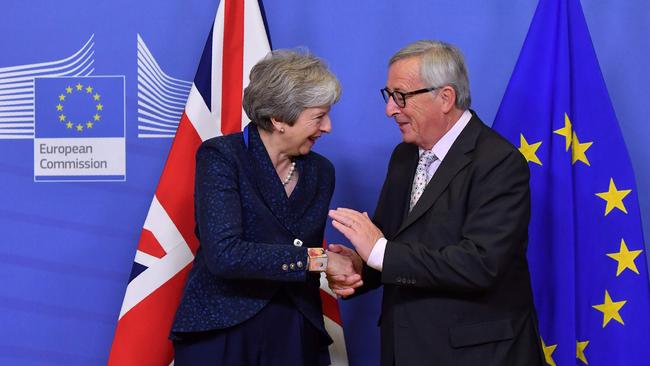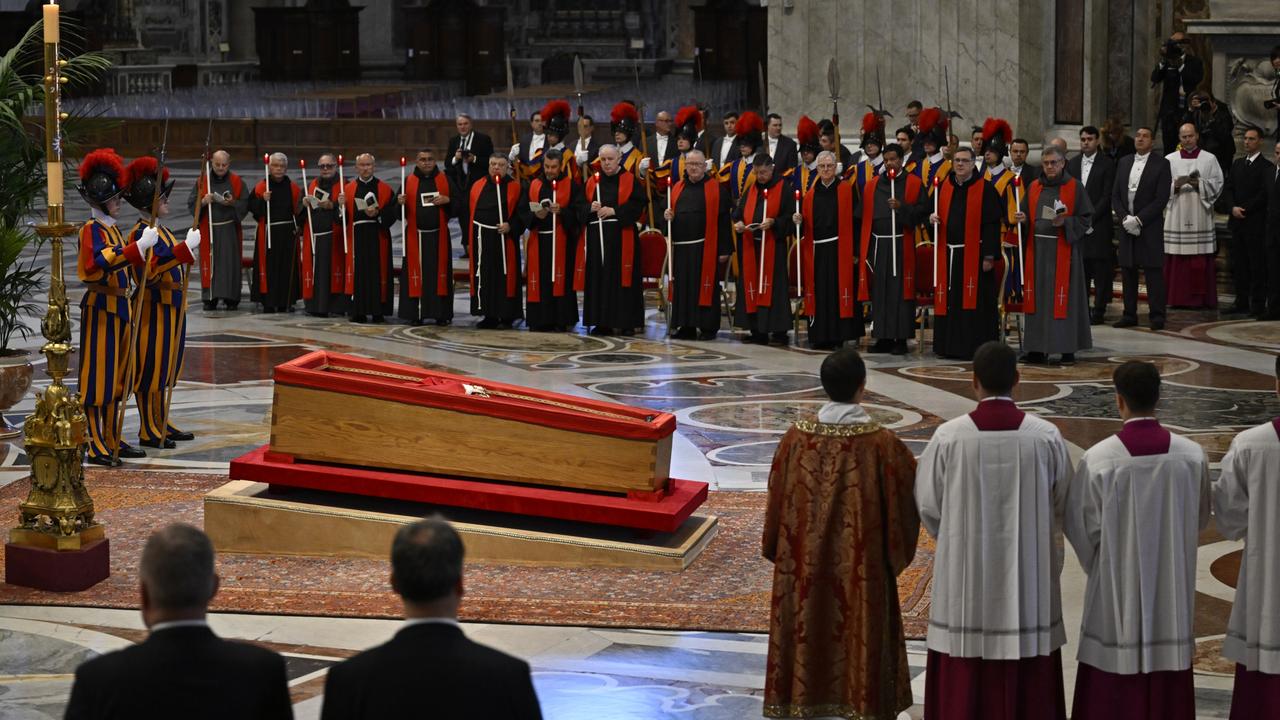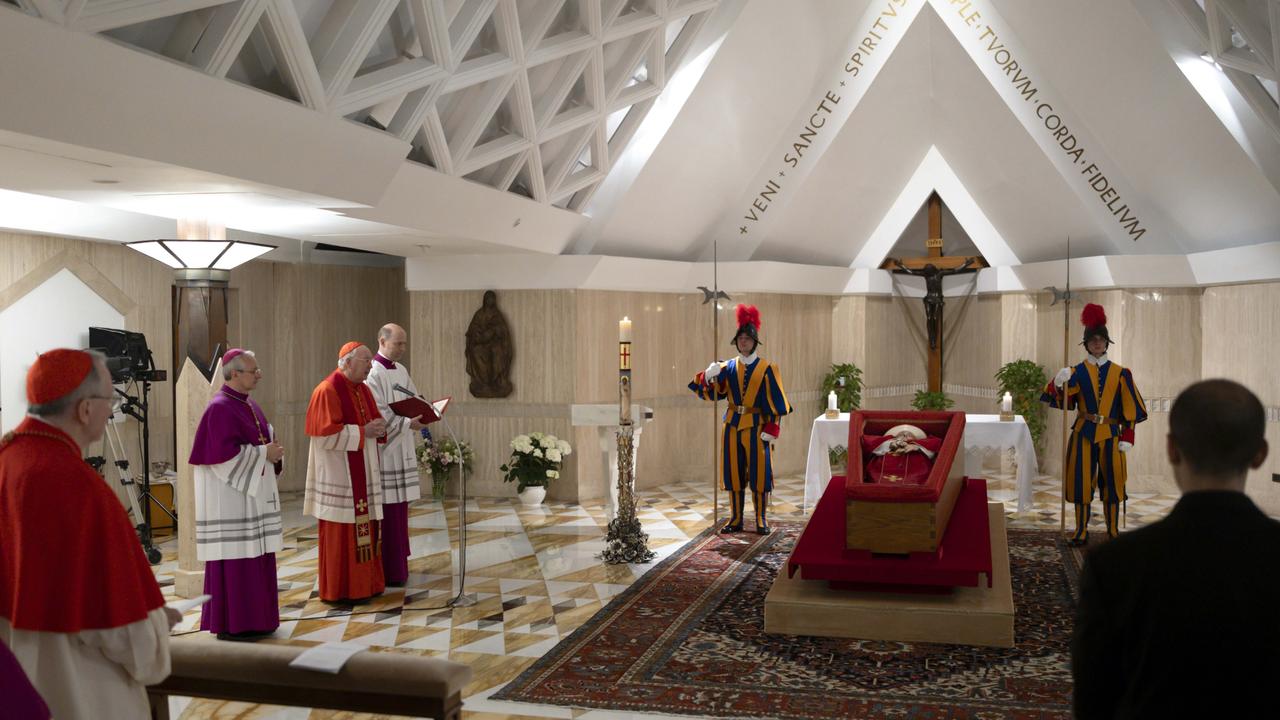European Council approves Brexit deal with Britain
In a bittersweet landmark, EU leaders have approved an agreement on Britain’s departure next year.

EU leaders met last night to approve a historic Brexit deal, which British Prime Minister Theresa May said would deliver her country a “brighter future”.
At a special summit in Brussels that was almost derailed by a row over Gibraltar, the other 27 leaders were to gather to sign off the agreement before Mrs May joins them to mark the milestone.
Forged during 17 months of negotiations, the deal covers financial matters, citizens’ rights, Northern Ireland and a transition phase, and sets out hopes for future security and trade ties. But it is not the final stage, as the House of Commons in London must still approve the deal before Brexit day next March 29 — and many MPs have warned they will not back it.
Until the agreement is approved, all sides are still planning for the potentially disastrous possibility that Britain ends its four-decade EU membership with no new arrangements in place.
EU Council president Donald Tusk, who has always said he would prefer Britain not to leave, said on the eve of the summit that “no one will have reasons to be happy” when Brexit happens. But he said terms had been agreed that would “reduce the risks and losses”, and recommended that EU leaders sign off on the deal.
Eurosceptics in Mrs May’s Conservative Party and their Northern Irish allies warn they will not support the agreement when MPs vote as expected next month. Labour, the Liberal Democrats and the Scottish Nationalists have all vowed to vote against it.
In an open “letter to the nation” yesterday, Mrs May said it delivered on the 2016 referendum — when 52 per cent backed Leave. Britain remains deeply divided over the decision, but the Prime Minister said that finally leaving could be “a moment of renewal and reconciliation”.
“It will be a deal that is in our national interest — one that works for our whole country and all of our people, whether you voted Leave or Remain,” she said.
“It is a deal for a brighter future, which enables us to seize the opportunities that lie ahead.
“To do that we need to get on with Brexit now by getting behind this deal. I will be campaigning with my heart and soul to win that vote and to deliver this Brexit deal, for the good of our United Kingdom and all of our people.”
Mrs May arrived on the eve of the summit for final talks on Saturday with Mr Tusk and European Commission president Jean-Claude Juncker, after which Mr Tusk’s spokesman tweeted: “We are on track for tomorrow.” But nothing in the negotiations has gone smoothly and the summit risked being derailed by a late objection to the deal by Spain over Gibraltar.
Prime Minister Pedro Sanchez threatened to reject it unless his country kept a veto over future changes to EU ties with the British territory, which Spain has long claimed. The impasse was resolved when Britain promised to continue talks with Madrid after Brexit — although that itself caused further tensions.
Mr Sanchez claimed that discussions would cover the “co-sovereignty” of Gibraltar, something residents overwhelmingly rejected in a 2002 referendum. Mrs May was quick to correct her Spanish counterpart, saying: “The UK’s position on the sovereignty of Gibraltar has not changed and will not change.”
In legal terms, Spain’s disapproval would not have halted the divorce settlement. But it would have been an embarrassing split for EU leaders who have proved remarkably united in negotiations.
British MPs are concerned about an arrangement in the withdrawal agreement to keep open the border between Northern Ireland and Ireland, under which the province follow EU rules for years.
But there are also concerns in EU capitals about fishing rights and commercial rules Britain must follow to maintain access to the bloc’s markets.
A diplomatic source said the minutes of last night’s summit meeting of the 27 leaders would record those concerns, although it was not clear if they would be made public. The Sunday Telegraph reported that members of Mrs May’s cabinet and EU diplomats were secretly working on “plan B” proposals, fearing MPs would reject the deal.
According to the report, several senior ministers are plotting the parameters of a Norway-style relationship with Brussels. It said senior EU figures were “war-gaming” how the bloc could extend Article 50 — the mechanism used to leave the bloc — to allow for various scenarios. Among them is a possible second referendum.
Responding to Mrs May’s letter, Labour MP Stephen Doughty said it was “completely false” to claim the only options were her agreement or no deal.
“By rejecting this deal, parliament can give the public a real choice in a people’s vote between leaving the EU on these terms or sticking with the deal we’ve got inside the EU,” he said.
AFP



To join the conversation, please log in. Don't have an account? Register
Join the conversation, you are commenting as Logout